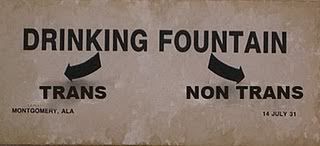
At the end of Part I, I said we, as communities, regions and nations should be able to ask the following, when it comes to public projects, without worrying in the slightest about funding:
1. Is this something we all want?
2. Is this something we can build together?
3. Is this something we can maintain together?
4. Does it benefit the community?
5. Is it Green? Is it sustainable?
6. Do we need it now?
I also talked about money being a bizarre concept and a fiction. Another thing that is truly strange? That a government would print money, give it to bankers so they can distribute it as they see fit, with the government getting some of that back in the form of taxes later. Much later. Not to mention the incredibly complex system of taxation and collection, which still manages to miss hundreds of billions per year in potential revenue.
A conservative might think this is strange/wrong because, to them, far too much money goes back to the government in the first place. A minarchist would want very close to nothing going back to a public sector they’d rather see shrink to the size of a peanut. Me? I think it’s all quite bizarre for a totally different reason. Not that it’s inefficient and bad because a portion of the money flows back to the government, instead of remaining in private hands. But that the public sector sends it out into the private sector in the first place. This I find to be absurd.
It’s like if you had plans to build a house, and you had all the resources needed — labor, funding, time, etc.. But the system said you have to send all of your tangible resources out into the private world first, and then wait until a portion of them come back to you. You had everything you needed to begin with. But the system says you can’t just build your house. You have to accumulate tiny portions (percentages) over time before you can build it.
An alternative to that would be that the public sector starts with a permanent store/pool of funding that never runs out. It’s always there. It’s already there, waiting to be used. And it’s owned by everyone. We all own it in common. No one owns more of it than anyone else. There is no need for taxes, debt, borrowing or investors. All funding would come from commonly owned banks on the community, regional and national levels. Not from the price of merchandise. Not from the exchange of dollars for that merchandise. The banks would completely supplant the former revenue stream used in capitalism. That revenue stream would now be obsolete and non-existent. Funding would only flow from the commonly owned banks.
How would this work internationally, once it took hold nationally? More below the fold.

 Councilman John Olszewski Sr., a Democrat, has introduced
Councilman John Olszewski Sr., a Democrat, has introduced 
